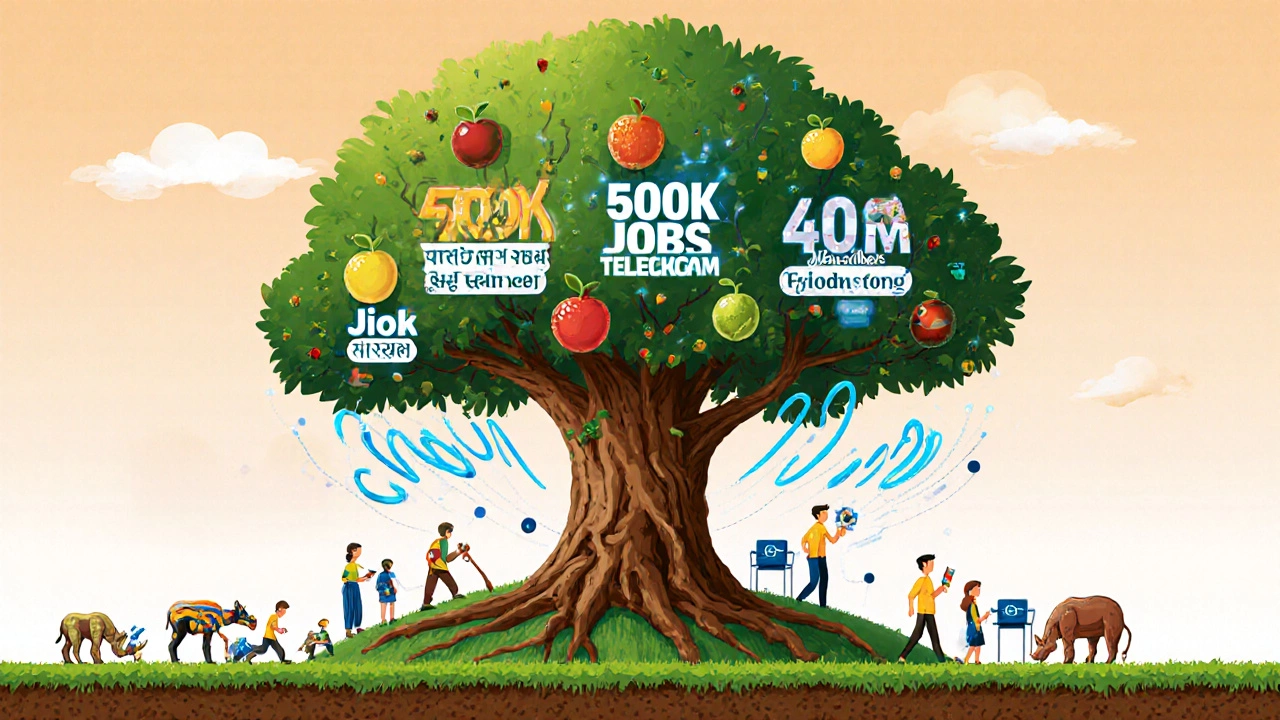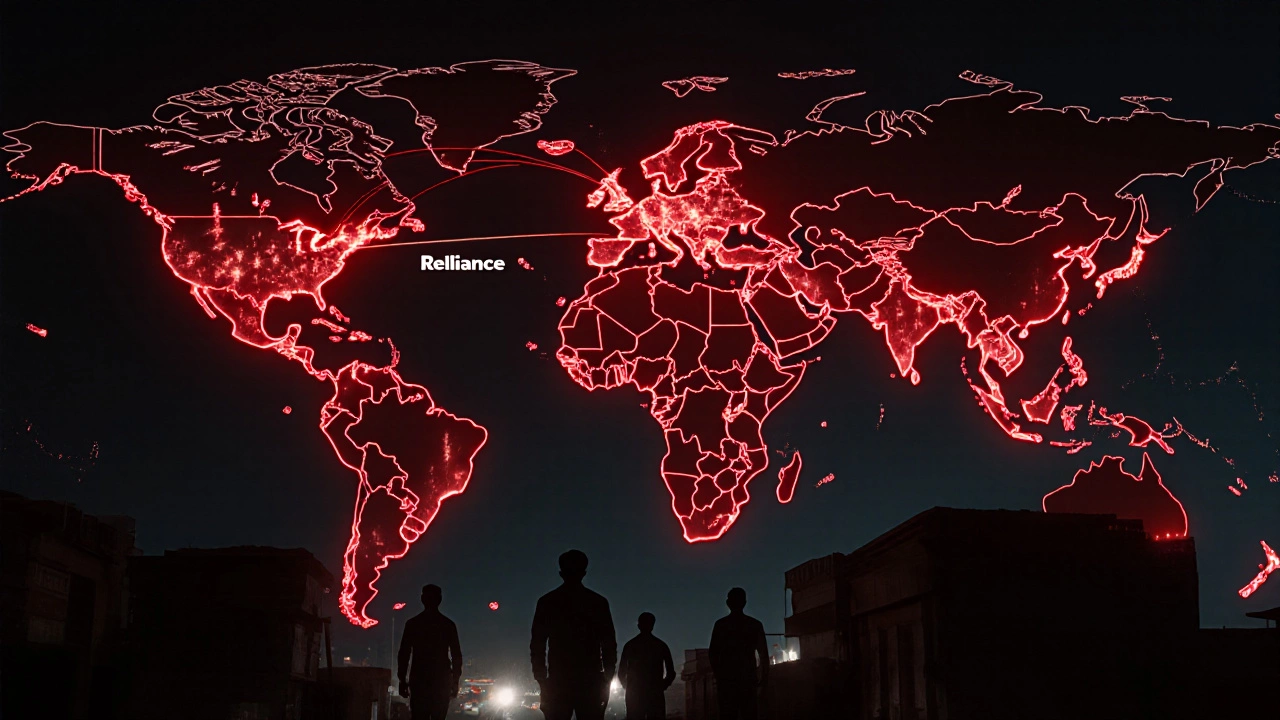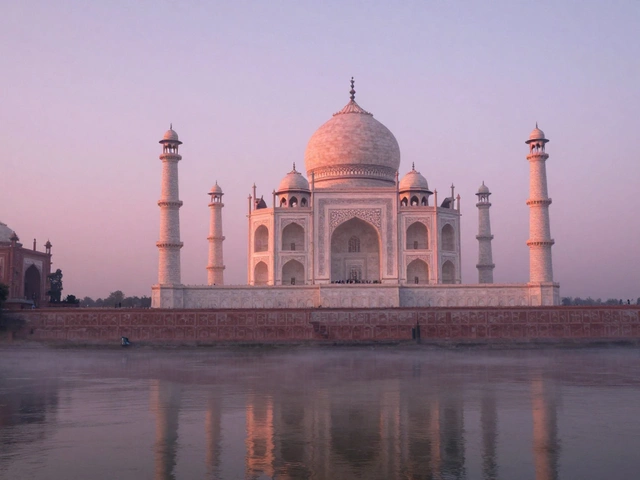When you think of India’s wealth, you might picture bustling markets in Jaipur, golden temples in Varanasi, or luxury trains gliding across the Rajasthan desert. But behind the scenes of India’s cultural and travel boom is a quiet force shaping its economy: its richest person. As of 2025, that title belongs to Mukesh Ambani is the chairman and largest shareholder of Reliance Industries, India’s most valuable company. Also known as Mukesh D. Ambani, he has held the top spot on India’s billionaire list for over 15 years running.
How Mukesh Ambani Built His Fortune
Mukesh Ambani didn’t inherit a fortune-he inherited a company. His father, Dhirubhai Ambani, started Reliance in the 1950s with a small textile business. By the time Mukesh took over in the 1980s, Reliance had become India’s largest private sector enterprise. But it was his bold move into petrochemicals and later telecommunications that turned him into a global billionaire.
In 2005, Reliance launched its refining complex in Jamnagar, Gujarat. It became the world’s largest oil refinery, processing over 1.24 million barrels of crude oil every day. That single facility alone generates more revenue than most countries’ annual budgets. By 2016, Ambani had shifted focus to digital services, launching Jio, a mobile network that offered free voice calls and dirt-cheap data. Within two years, Jio added over 400 million subscribers. Overnight, India went from one of the slowest internet markets to one of the fastest-and Ambani became the richest man in Asia.
Today, Reliance Industries has over $120 billion in annual revenue. Its businesses span oil refining, retail, telecom, media, and even clean energy. Ambani owns 45% of the company, which gives him a personal net worth of around $112 billion as of late 2025. That’s more than the GDP of over 150 countries.
Who Else Is in the Top Tier?
While Ambani is far ahead, India’s billionaire club is growing fast. The second richest person is Gautam Adani is the founder of the Adani Group, a conglomerate with major interests in ports, mining, power, and renewable energy. Also known as Gautam S. Adani, he briefly surpassed Ambani in 2022 during a stock surge, but his wealth dropped sharply after a 2023 short-seller report and market corrections.
Adani’s net worth has stabilized at around $68 billion in 2025, still impressive but no longer close to Ambani’s. Other names in the top five include:
- Shiv Nadar is the founder of HCL Technologies, a global IT services firm. Also known as Shiv Nadar, he is a pioneer in India’s software export industry and has donated over $1 billion to education.
- Radhakishan Damani is the founder of DMart, India’s most successful discount retail chain. Also known as Radhakishan Damani, he built his fortune without ever taking his company public.
- Savitri Jindal is the chairperson of JSW Group, one of India’s largest steel producers. Also known as Savitri Jindal, she inherited the business after her husband’s death and expanded it into infrastructure and power.
Unlike Ambani, most of these billionaires built their wealth in specific sectors-retail, tech, steel, or infrastructure. None have the same level of vertical integration or consumer reach as Reliance. That’s why Ambani remains untouchable.

What Does His Wealth Mean for India?
Mukesh Ambani’s wealth isn’t just about personal luxury. It’s tied to millions of jobs, hundreds of thousands of small businesses, and India’s entire digital transformation. Reliance’s retail arm, Reliance Retail, operates over 15,000 stores across India-from metro cities to small towns. It employs more than 500,000 people directly and supports another 3 million through its supply chain.
His investments in green energy-like the $10 billion commitment to build a hydrogen economy-are pushing India toward its 2070 net-zero goal. Jio’s network connects rural schools, farmers, and clinics to digital services they never had before. Even his 173-story Mumbai home, Antilia, isn’t just a symbol of wealth-it’s a tech lab housing AI systems, air purification plants, and a staff of over 600.
But there’s also criticism. Some economists say his dominance in telecom and retail stifles competition. Small shop owners struggle to compete with Reliance’s pricing. Critics argue that too much economic power is concentrated in one family. Still, there’s no denying that his companies have lifted millions out of poverty by creating jobs and lowering the cost of essentials like data, fuel, and groceries.
Why This Matters for Travelers
If you’re planning a temple tour in South India or a luxury train ride through Rajasthan, you’re already part of the economy Ambani helped shape. Reliance owns the majority of India’s top hotel chains through its partnership with Marriott and Accor. It runs the largest travel booking platform in India, JioMart Travel. Even the new airports in Ahmedabad, Hyderabad, and Bengaluru were built with Reliance Infrastructure contracts.
When you book a tour to the Meenakshi Temple in Madurai or the Tirupati Balaji Temple, chances are you’re using a payment system powered by JioPay. Your hotel’s Wi-Fi? Likely provided by JioFiber. The snacks you buy at the temple gate? Possibly stocked by Reliance Retail.
In short, Ambani’s empire isn’t hidden behind boardrooms. It’s in the air you breathe, the data you use, and the way you move across India. His wealth isn’t just a number-it’s infrastructure.

What’s Next for Ambani?
At 67, Ambani is not slowing down. He’s investing heavily in AI, quantum computing, and battery technology. Reliance recently announced a $7 billion partnership with Apple to bring advanced manufacturing to India. He’s also pushing to make India a global hub for green hydrogen exports.
His children-Akash, Isha, and Anant-are being groomed to take over. Each has been given control of a major division: Akash runs Jio, Isha leads media and entertainment, and Anant heads clean energy. The transition will likely be smooth, ensuring the family’s control continues for decades.
For now, Mukesh Ambani remains the undisputed richest person in India. And as long as India keeps growing, so will his influence.
Is Mukesh Ambani the richest person in Asia?
Yes, as of 2025, Mukesh Ambani is the richest person in Asia. His net worth of around $112 billion exceeds that of any other individual on the continent, including billionaires from China, Japan, and South Korea. He has held this position since 2020.
How does Mukesh Ambani’s wealth compare to Elon Musk’s?
As of late 2025, Elon Musk’s net worth is slightly higher than Ambani’s, hovering around $130 billion due to Tesla and SpaceX stock gains. However, Ambani’s wealth is more stable and less tied to volatile tech stocks. Musk’s fortune can swing by tens of billions in a single day; Ambani’s is anchored in physical assets like refineries, retail chains, and telecom networks.
Did Mukesh Ambani inherit his wealth?
He inherited Reliance Industries from his father, Dhirubhai Ambani, but he didn’t inherit the fortune. When Dhirubhai passed away in 2002, the company was worth about $5 billion. Mukesh, along with his brother Anil, split the business. Mukesh took control of oil, petrochemicals, and refining-areas he expanded dramatically. He built his $112 billion fortune through strategic decisions, not inheritance alone.
Does Mukesh Ambani own any property outside India?
Yes. Ambani owns a luxury apartment in London’s One Hyde Park and a vacation home in the south of France. He also has investments in U.S.-based private equity funds and owns shares in international companies like BP and TotalEnergies. But over 95% of his wealth remains tied to Indian assets.
Is there any Indian billionaire close to Ambani’s wealth?
No one is close. Gautam Adani, the second richest, has a net worth of about $68 billion-roughly 40% less than Ambani. The gap has widened since 2022. No other Indian billionaire has crossed $50 billion. Ambani’s lead is the largest among top billionaires in any major economy.
Final Thoughts
When you visit a temple in India, you’re not just seeing stone and prayer-you’re walking through a country transformed by commerce, technology, and ambition. Mukesh Ambani’s story isn’t just about money. It’s about how one person’s vision reshaped how an entire nation connects, travels, and lives. His wealth is a mirror of India’s rise-not just in numbers, but in scale, speed, and impact.









